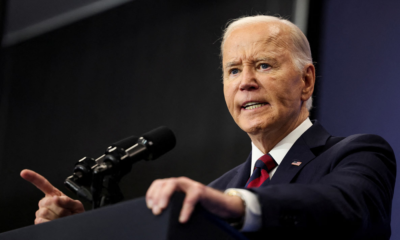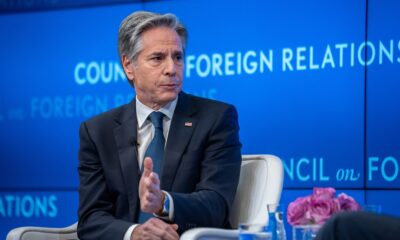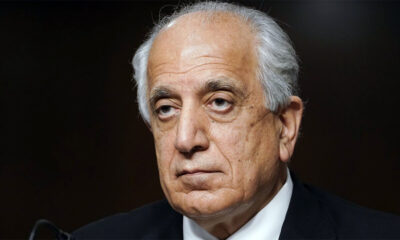Science & Technology
Hundreds of flying taxis to be made in Ohio
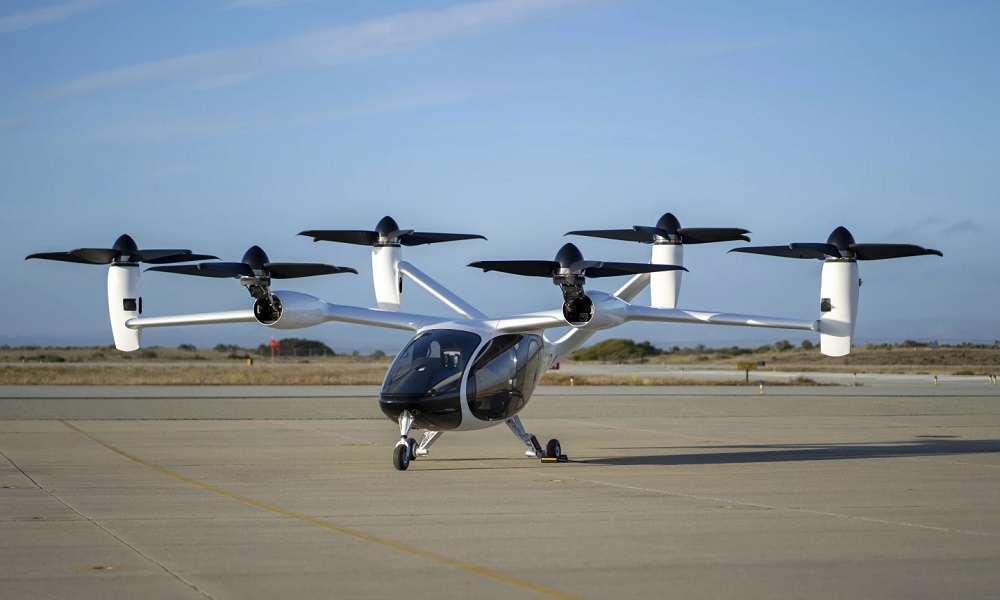
The same Ohio river valley where the Wright brothers pioneered human flight will soon be manufacturing cutting-edge electric planes that take off and land vertically, under an agreement announced Monday between the state and Joby Aviation Inc.
“When you’re talking about air taxis, that’s the future,” Republican Gov. Mike DeWine told The Associated Press. “We find this very, very exciting — not only for the direct jobs and indirect jobs it’s going to create, but like Intel, it’s a signal to people that Ohio is looking to the future. This is a big deal for us.”
Around the world, electric vertical takeoff and landing, or eVTOL aircraft are entering the mainstream, though questions remain about noise levels and charging demands. Still, developers say the planes are nearing the day when they will provide a wide-scale alternative to shuttle individual people or small groups from rooftops and parking garages to their destinations, while avoiding the congested thoroughfares below.
Joby’s decision to locate its first scaled manufacturing facility at a 140-acre site at Dayton International Airport delivers on two decades of groundwork laid by the state’s leaders, Republican Lt. Gov. Jon Husted said. Importantly, the site is near Wright-Patterson Air Force Base and the headquarters of the U.S. Air Force Research Laboratories.
“For a hundred years, the Dayton area has been a leader in aviation innovation,” Husted said. “But capturing a large-scale manufacturer of aircraft has always eluded the local economy there. With this announcement, that aspiration has been realized.”
The Wright brothers, Orville and Wilbur, lived and worked in Dayton. In 1910, they opened the first U.S. airplane factory there. To connect the historical dots, Joby’s formal announcement Monday took place at Orville Wright’s home, Hawthorn Hill, and concluded with a ceremonial flypast of a replica of the Wright Model B Flyer.
Joby’s production aircraft is designed to transport a pilot and four passengers at speeds of up to 321.87 kilometers per hour, with a maximum range of 160.93 kilometers. Its quiet noise profile is barely audible against the backdrop of most cities, the company said. The plan is to place them in aerial ridesharing networks beginning in 2025.
The efforts of the Santa Cruz, California-based company are supported by partnerships with Toyota, Delta Air Lines, Intel and Uber. Joby is a 14-year-old company that went public in 2021 and became the first eVTOL firm to receive U.S. Air Force airworthiness certification.
The $500 million project is supported by up to $325 million in incentives from the state of Ohio, its JobsOhio economic development office and local government. With the funds, Joby plans to build an Ohio facility capable of delivering up to 500 aircraft a year and creating 2,000 jobs. The U.S. Department of Energy has invited Joby to apply for a loan to support development of the facility as a clean energy project.
Joby CEO JoeBen Bevirt told the AP that the company chose Ohio after an extensive and competitive search. Its financial package wasn’t the largest, but the chance to bring the operation to the birthplace of aviation — with a workforce experienced in the field — sealed the deal, he said.
“Ohio is the No. 1 state when it comes to supplying parts for Boeing and Airbus,” Bevirt said. “Ohio is No. 3 in the nation on manufacturing jobs — and that depth of manufacturing prowess, that workforce, is critical to us as we look to build this manufacturing facility.
Construction on the manufacturing facility is expected to begin in 2024, with production to begin in 2025.
Science & Technology
Australia’s under-16 social media ban sparks anger and relief

Australians reacted on Friday with a mixture of anger and relief to a social media ban on children under 16 that the government says is world-leading, but which tech giants like TikTok argue could push young people to "darker corners of the internet".
Australia approved the social media ban for children late on Thursday after an emotive debate that has gripped the nation, setting a benchmark for jurisdictions around the world with one of the toughest regulations targeting Big Tech, Reuters reported.
The law forces tech giants from Instagram and Facebook owner Meta Platforms to TikTok to stop minors from logging in or face fines of up to A$49.5 million ($32 million). A trial of enforcement methods will start in January, with the ban to take effect in a year.
"Platforms now have a social responsibility to ensure the safety of our kids is a priority for them," Australian Prime Minister Anthony Albanese said on Friday
"We're making sure that mums and dads can have that different conversation today and in future days."
Announcing the details of the ban earlier this month, Albanese cited the risks to physical and mental health of children from excessive social media use, in particular the risks to girls from harmful depictions of body image, and misogynist content aimed at boys.
In Sydney on Friday, reaction to the ban was mixed.
"I think that's a great idea, because I found that the social media for kids (is) not really appropriate, sometimes they can look at something they shouldn't," said Sydney resident Francesca Sambas.
Others were more scathing.
"I'm feeling very angry, I feel that this government has taken democracy and thrown it out the window," said 58-year-old Shon Klose.
"How could they possibly make up these rules and these laws and push it upon the people?"
Children, meanwhile, said they would try to find a way around the ban.
"I feel like I still will use it, just secretly get in," said 11-year-old Emma Wakefield.
WORLD FIRST
Countries including France and some U.S. states have passed laws to restrict access for minors without a parent's permission, but the Australian ban is absolute. A full under-14s ban in Florida is being challenged in court on free speech grounds.
Albanese's Labor party won crucial support from the opposition conservatives for the bill that was fast-tracked through the country's parliament as part of 31 bills pushed through in a chaotic final day of parliament for the year.
The government has said enough notice was given as it first flagged the ban after a parliamentary inquiry earlier this year that heard testimony from parents of children who had self-harmed due to cyber bullying.
But it was criticised by social media firms and some lawmakers who say the bill has lacked proper scrutiny.
A spokesperson for TikTok, which is hugely popular with teen users, said on Friday the process had been rushed and risked putting children into greater danger.
"We're disappointed the Australian government has ignored the advice of the many mental health, online safety, and youth advocacy experts who have strongly opposed the ban," the spokesperson said.
Albanese said on Friday passing the bill before the age verification trial has been completed was the correct approach.
"We've got your back is our message to Australian parents," Albanese said.
"We don't argue that its implementation will be perfect, just like the alcohol ban for under 18s doesn't mean that someone under 18 never has access, but we know that it's the right thing to do."
The ban could strain Australia's relationship with key ally the United States, where X owner Elon Musk, a central figure in the administration of president-elect Donald Trump, said in a post this month it seemed a "backdoor way to control access to the Internet by all Australians".
It also builds on an existing mood of antagonism between Australia and mostly US-domiciled tech giants. Australia was the first country to make social media platforms pay media outlets royalties for sharing their content and now plans to threaten them with fines for failing to stamp out scams.
Science & Technology
South Korea authorities launch probe after three die in Hyundai car test
The Ulsan plant is Hyundai’s biggest manufacturing facility, with its own port and an annual production capacity of 1.4 million vehicles
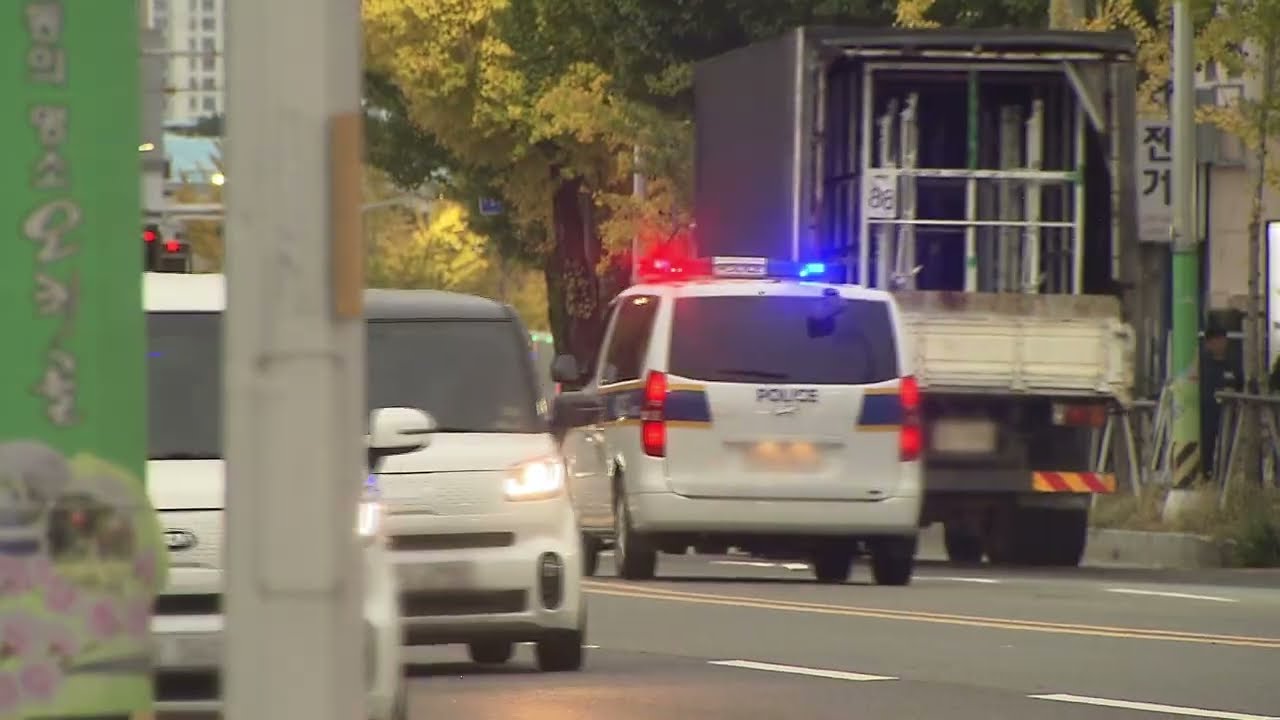
South Korean authorities launched an investigation on Tuesday after three people died during a car test at a Hyundai Motor plant in the city of Ulsan, police told Reuters.
The two Hyundai researchers and one Hyundai contractor were found unconscious in a car at around 3:00 p.m. while they were testing it in a "chamber," according to Hyundai's labour union.
South Korean media reports said the three had suffocated.
A police officer in Ulsan said the police and the labour ministry were investigating the incident, including its cause.
A fire department official told Reuters that it first received a report at 3:17 pm that the accident happened at Hyundai's No.4 factory.
"Hyundai Motor Company is deeply saddened by the incident that occurred at our plant in Ulsan, South Korea," Hyundai said in a statement, saying it would "cooperate fully with all relevant authorities to determine the cause of this incident."
The Ulsan plant is Hyundai's biggest manufacturing facility, with its own port and an annual production capacity of 1.4 million vehicles, including exports of 1.1 million units.
In November last year, Hyundai Motor broke ground on a 2 trillion won ($1.44 billion) plant in Ulsan dedicated to making electric vehicles in South Korea, as the automaker accelerated a shift away from petrol-powered cars.
[embed]https://youtu.be/KrLKCrpLALU[/embed]
Science & Technology
Russia fines Google more than the world’s total GDP over YouTube bans

Russia has fined Google $2.5 decillion after the US tech giant took action against pro-Kremlin TV channels on YouTube following Moscow’s invasion of Ukraine.
Russia imposed a daily fine four years ago - a fine that has since swelled to an unprecedented level - ($20,000,000,000,000,000,000,000,000,000,000,000 - a 33-digit figure).
To put this into perspective, global GDP reaches an estimated $110 thousand billion (12-digit figure), according to the IMF.
Speaking to Russia’s TASS news agency, one expert, Roman Yankovsky from the HSE Institute of Education, said Google “clearly will not pay this penalty, and the Russian Federation will not be able to recover this money from the company."
Euronews reported that a short calculation shows that he is right.
Google's holding company, Alphabet, has a market capitalisation of slightly more than $2 trillion. Even with earnings of $80.54 billion from the last quarter, the tech giant doesn’t seem to be able to afford to pay the fine.
Google first barred pro-Moscow channel Tsargrad TV, which is owned by oligarch Konstantin Malofeev, four years ago.
At the time, Google was fined a daily penalty of 100,000 roubles and warned that amount would double every 24 hours if it went unpaid.
The original fine has been compounded by further penalties after Google eventually blocked a total of 17 Russian TV channels as a result of international sanctions, The Telegraph reported.
The tech giant now owes a staggering $2.5 decillion.
-

 International Sports5 days ago
International Sports5 days agoWinners of The Best FIFA Football Awards 2024 to be revealed Dec. 17
-

 Regional4 days ago
Regional4 days agoBomb kills chief of Russian nuclear protection forces in Moscow
-

 Sport4 days ago
Sport4 days agoATN once again seals deal to broadcast upcoming IPL across Afghanistan
-

 Sport4 days ago
Sport4 days agoLanka T10: All three matches abandoned due to rain
-

 World4 days ago
World4 days agoAt least 100,000 bodies in Syrian mass grave, US advocacy group head says
-

 Latest News4 days ago
Latest News4 days agoIndia hoping to import coal and marble from Afghanistan
-

 Latest News4 days ago
Latest News4 days agoTrump says he would have pulled out of Afghanistan with ‘dignity and strength’
-

 Latest News4 days ago
Latest News4 days agoFuel prices rise in Herat as winter approaches






